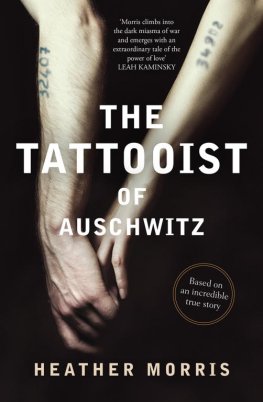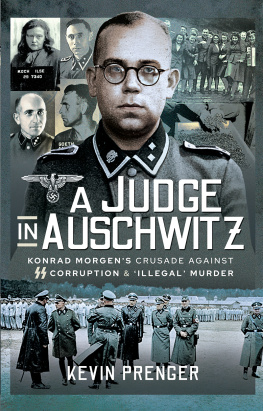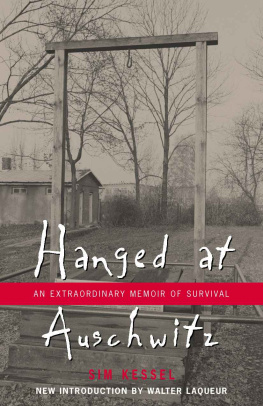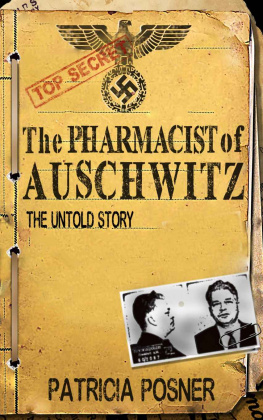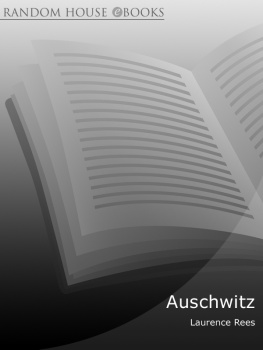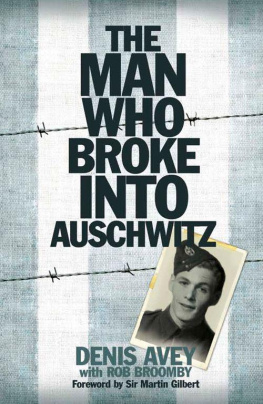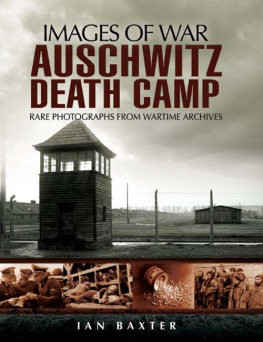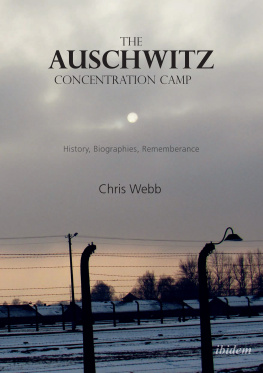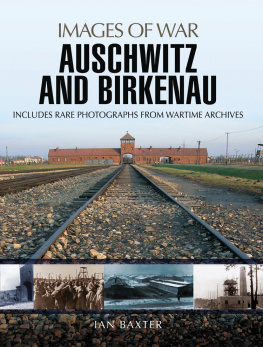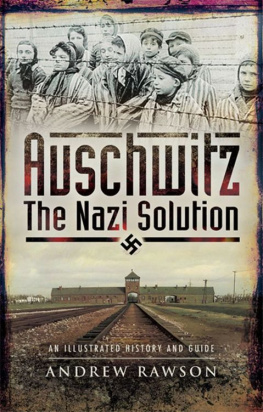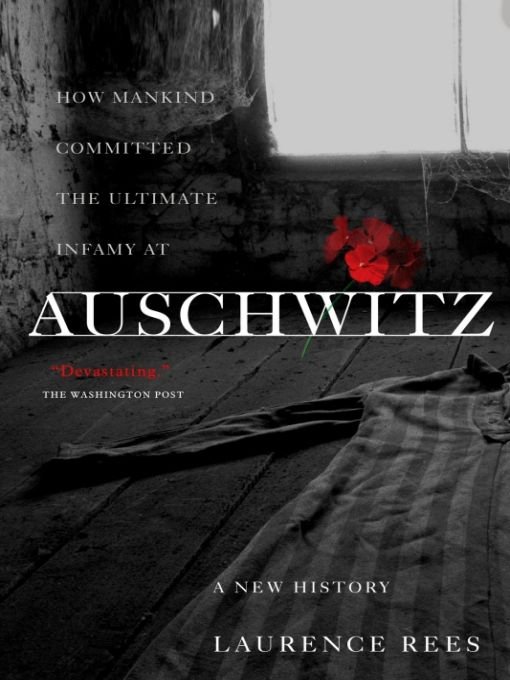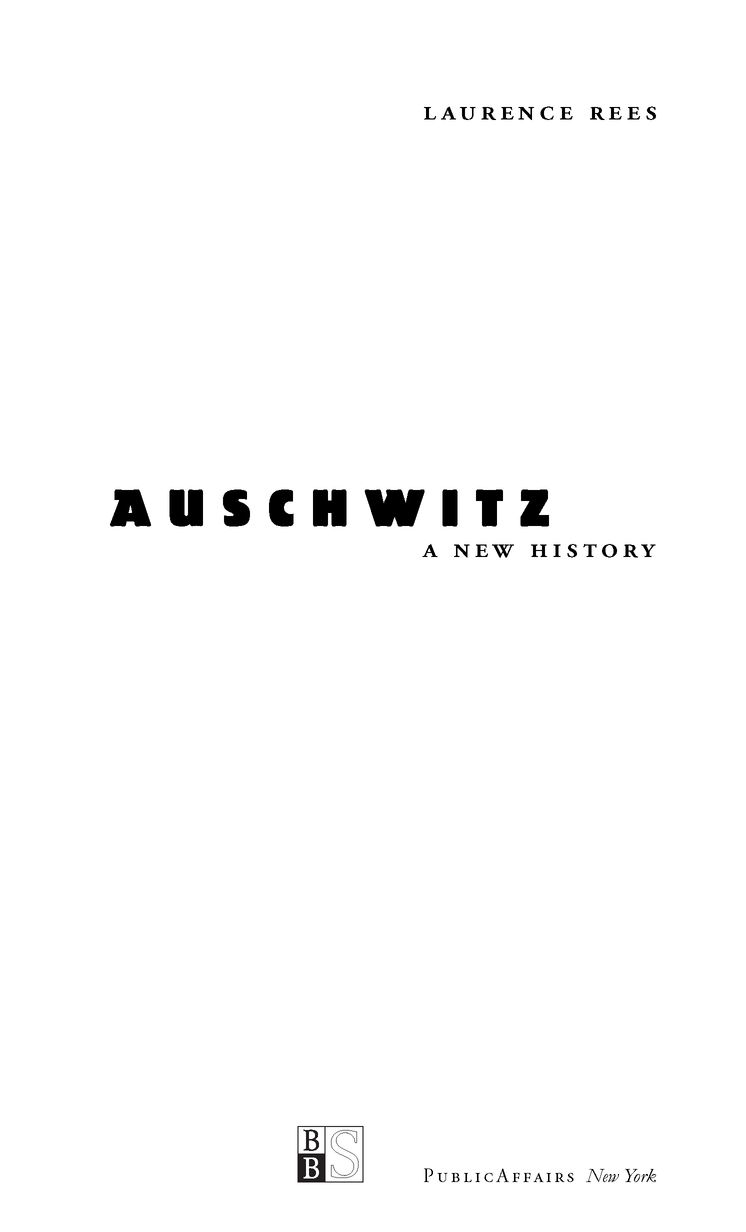Table of Contents
In memory of the 1.1 million men, women, and children who died at Auschwitz
INTRODUCTION
There is much in this book that is upsetting, but I still think it is a necessary piece of work. Not just for the obvious reason that surveys still show that there is confusion in the popular consciousness about the true history of Auschwitz, but also because I hope it offers something distinctive.
It is the culmination of fifteen years of writing books and making television programs about the Nazis, and is an attempt to show how one of the worst crimes in history is best understood through the prism of one physical placeAuschwitz. Unlike the history of anti-Semitism, Auschwitz has one certain beginning (the first prisoners arrived on June 14, 1940), and unlike the history of genocide, it has one definite end (the camp was liberated in January 1945). In between these two dates, Auschwitz had a complex and surprising history that, in many ways, mirrored the intricacies of Nazi racial and ethnic policy. Auschwitz was never conceived as a camp to kill Jews, it was never solely concerned with the Final Solutionalthough that came to dominate the placeand it was always physically changing, often in response to the constant shifts in fortunes of the German war effort elsewhere. Auschwitz, through its destructive dynamism, was both a microcosm of the Nazi state and the logical consequence of it.
The study of Auschwitz also offers something other than an insight into the Nazis; it offers us the chance to understand how human beings behaved in some of the most extreme conditions in history. From this story, there is a great deal we can learn about ourselves.
This is a book based on unique researchabout 100 interviews specially conducted with former Nazi perpetrators and survivors from the campand draws on hundreds more interviews, conducted for my previous work on the Third Reich, many with former members of the Nazi party. The benefit of meeting and questioning survivors and perpetrators is immense. It offers an opportunity for a level of insight that is rarely available from written sources alone.
Indeed, although since my school days I had always been interested in this period of history, I can trace my own deep fascination with the Third Reich to one moment during a conversation with a former member of the Nazi party back in 1990. While writing and producing a film about Dr. Josef Goebbels, I talked to Wilfred von Oven who, as Goebbels personal attach, had worked closely with the infamous Nazi propaganda minister. After the formal interview, over a cup of tea, I asked this intelligent and charming man: If you could sum up your experience of the Third Reich in just one word, what would it be? As Herr von Oven thought for a moment and considered the question, I guessed his response would make reference to the horrible crimes of the regimecrimes he freely admitted had occurredand of the damage Nazism had wreaked upon the world. Well, he finally said, if I was asked to sum up my experience of the Third Reich in one word, that word would be paradise.
Paradise? That didnt coincide with anything I had read in my history books. Nor did it square with the elegant, sophisticated man who sat in front of me, and who did not, come to that, look or talk as I had imagined a former Nazi should. But paradise? How was it possible that he could say such a thing? How could any intelligent person think of the Third Reich and its atrocities in such a way? Indeed, how was it possible that, during the twentieth century, people from Germanya cultured nation at the heart of Europehad ever perpetrated such crimes? Those were the questions that formed in my mind that afternoon all those years ago, and that still sit heavily in my mind today.
In my attempt to answer these questions I was helped by two accidents of history. The first was that I set out to question former Nazis at exactly the point in time at which most of them had nothing to lose by speaking openly. Fifteen years earlier, while holding down influential jobs and standing as pillars of their communities, they would not have spoken. Today, fifteen years later, most of themincluding the charming Herr von Ovenare dead.
It often took monthsin some cases yearsto persuade them to allow me to record an interview. We never will know exactly what tipped the balance and made an individual agree to be filmed but, in many cases, they clearly felt that, nearing the end of their lives, they wanted to put on recordwarts and alltheir experiences of these momentous times. They also believed that the BBC would not distort their contribution. I would add that I think only the BBC would have given us the necessary support to pursue this enterprise. The research period for these projects was so long that only a public-service broadcaster could have made such a commitment.
The second break I had was that my interest coincided with the fall of the Berlin Wall and the opening of eastern Europe; and it was not just the archives that suddenly became available for research, but the people as well. I had filmed in the Soviet Union in 1989 under Communism and, back then, it was hard to get anyone to speak about their nations history in any terms other than propaganda slogans. Now, suddenly, in the 1990s, it was as if a dam had broken and all the suppressed memories and opinions came tumbling out. In the Baltic states I heard people say how they had welcomed the Nazis as liberators; on the wild steppes of Kalmykia I learned first-hand about Stalins vindictive deportations of whole ethnic communities; in Siberia I met veterans who had been imprisoned twiceonce by Hitler and once by the Soviet dictator; and in a village near Minsk I encountered a woman who had been caught in the middle of the most vicious partisan war in modern history and, upon reflection, who thought that the Red Army partisans were worse than the Nazis. All of these deeply held convictions would have died with the people who held them had Communism not fallen.
I also encountered something more frightening as I traveled these newly liberated countries, from Lithuania to the Ukraine and from Serbia to Belarusvirulent anti-Semitism. I had expected people to tell me how much they hated the Communiststhat seemed only natural now. But to hate Jews? It seemed ludicrous, especially as there were hardly any Jews in the places I was visitingHitler and the Nazis had seen to that. Yet, the old man in the Baltic states who had helped the Nazis shoot Jews in 1941 still thought he had done the right thing sixty years earlier. And even some of those who had fought against the Nazis held wild anti-Semitic beliefs.
I remember the question one Ukrainian veteran put to me over lunch. He was a man who had fought bravely for the Ukrainian Nationalist partisans against both the Nazis and the Red Army and been persecuted as result. What do you think, he asked, of the view that there is an international conspiracy of Jewish financiers operating out of New York which is trying to destroy all non-Jewish governments? I looked at him for a second. Not being Jewish myself, it is always something of a shock to encounter naked anti-Semitism from an unexpected source. What do I think of that view? I replied finally. I think its total garbage. The old partisan took a sip of vodka. Really, he said, Thats your opinion. Interesting....
What shocked me most of all was that these anti-Semitic views were not just confined to the older generation. I remember the woman at the Lithuanian Airways check-in desk who, after learning the subject of the film we were making, said, Youre interested in the Jews, are you? Well, just remember thisMarx was a Jew. Also in Lithuania, I recall an army officer in his mid-twenties showing me round the site of the 1941 Jewish massacres at a fort in Kaunas and saying, Youre missing the big story, you know. The story isnt what we did to the Jews. Its what the Jews did to us. I do not claim for a moment that everyoneor even the majorityin the eastern European countries I visited subscribes to these views; but that this kind of prejudice is openly expressed at all is disturbing.


